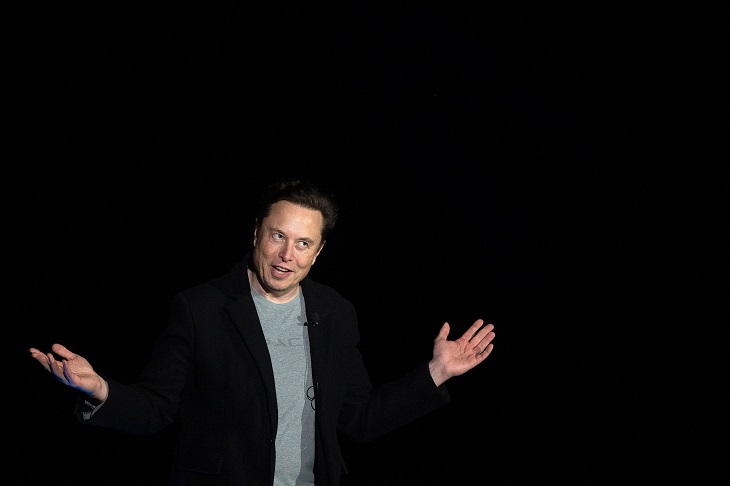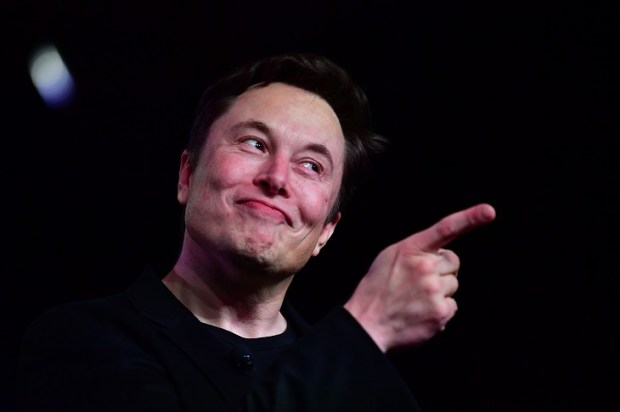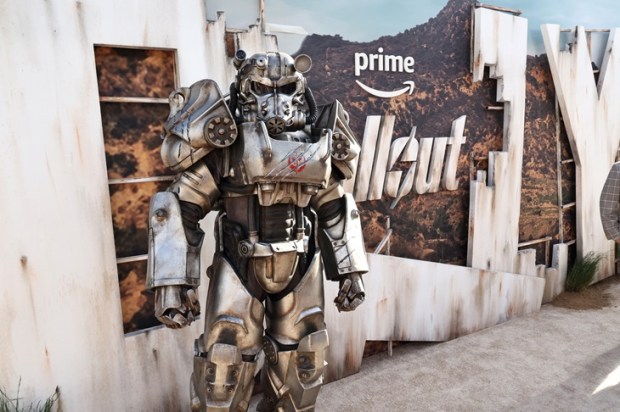Back in the lockdown days, around the time I started fiddling around with cryptocurrency, Elon Musk was hailed as a hero among blockchain enthusiasts when he announced that Tesla had bought $1.5 billion in Bitcoin, and would allow customers to use it for payment. Three months later, Musk backflipped and suspended Bitcoin payments over (demonstrably false) ‘environmental concerns’. The price of Bitcoin, which had soared on the news of Musk’s original purchase, plunged by over 50 per cent.
The point of this story is that Elon Musk giveth, and Elon Musk taketh away. And so it is – or might be – when it comes to Musk’s plans for Twitter. Strolling into headquarters in San Francisco and frog-marching the old, pro-censorship guard out of the building was a good start, but the hard work is just beginning, and signs so far are mixed.
Soon after he took control of the social media platform, Musk assured users that it would not become a ‘free-for-all hellscape’. But Twitter already is a hellscape – that’s the point. Most of us would happily welcome a free-for-all over the free-for-some status quo, in which conservatives get suspended, banned, and ‘fact-checked’ while all manner of outlandish musings from the left are ignored.
Then this week, Musk had a Zoom call with representatives of seven pro-censorship lobby groups – including one group whose title is, perversely, Free Press, but whose website is littered with the usual velvet glove claptrap about ‘media accountability’ and the horrors of online ‘disinformation’.
In typical earnest, left-wing arrogance, the various representatives furnished Musk with a list of ‘requests’ – including that Musk ‘maintain election-integrity systems’ (that is, blackballing anyone from the right with concerns about America’s ramshackle electoral system) until after the US midterms, and that he not ‘replatform people’ (that is, reinstate conservatives booted from Twitter) without ‘a transparent process’. Transparent to whom? And by what right? Twitter is, as smug establishment types have frequently reminded us, a private platform.
The fact that Musk would even entertain demands like these suggests that he might not be the free speech bad boy that he makes himself out to be. Worse still, Musk gave every indication of giving in, with Free Press [sic] CEO Jessica Gonzalez coming out of the meeting claiming that ‘he said he’s going to meet these requests’.
To veterans of 21st century fight for free speech, this should sound depressingly familiar. Nobody ever openly advocates for censorship, it’s always a case of ‘I support free speech, but…’ ‘Hate speech’ a frequent carve-out, but the term is used so widely it’s basically meaningless. ‘Misinformation’ is another – despite the fact that almost everything deemed to be ‘misinformation’ by social media platforms, from the efficacy of lockdowns to the murky contents of Hunter Biden’s laptop, turned out to be true.
And of course, there is the relatively recent suggestion that the very existence of conservatives in the public square poses a nefarious ‘threat to democracy’. Because nothing is more democratic than freezing one side out of the public debate.
Does Twitter need some kind of content moderation policy? Probably, if for no other reason than user experience. Nobody wants their Twitter feed crammed with bots and spammers, nor their direct messages full of genuine abuse and threats of violence.
But it would defeat the entire purpose of Musk’s acquisition of Twitter if he took the knee to the kind of sanctimonious grievance-mongers who are so intimidated by contrary opinions that they have embarked on a childish crusade to simply will them out of existence.
Because as noxious as it often is, Twitter is important. In a fragmented media landscape, Twitter is one of the few public squares we have left. Even if we’re yelling at each other, it’s one of the few places where you can still hear something with which you disagree. The great irony is that it is progressives who need this the most. Maybe if they actually listened to what us ‘ultra-MAGA’ types have to say, they may discover that we’re not so scary after all.
I like Elon Musk. I like that he’s a free thinker, a renegade, and a little bit crazy. As someone with the capital and the cajones to take on the woke-industrial complex, he’s one of the best hopes we have. But he can disappoint as well as delight, and it’s still early days.
Musk has come too far in his quest to unclog this vital artery of public debate to stop now. He must remember the original mission, and not let himself be beaten into submission as so many often are. If he caves, his $44 billion Twitter purchase will prove to be an extremely poor investment.
Gideon Rozner is Director of Policy at the Institute of Public Affairs
Got something to add? Join the discussion and comment below.
Get 10 issues for just $10
Subscribe to The Spectator Australia today for the next 10 magazine issues, plus full online access, for just $10.


























Comments
Don't miss out
Join the conversation with other Spectator Australia readers. Subscribe to leave a comment.
SUBSCRIBEAlready a subscriber? Log in